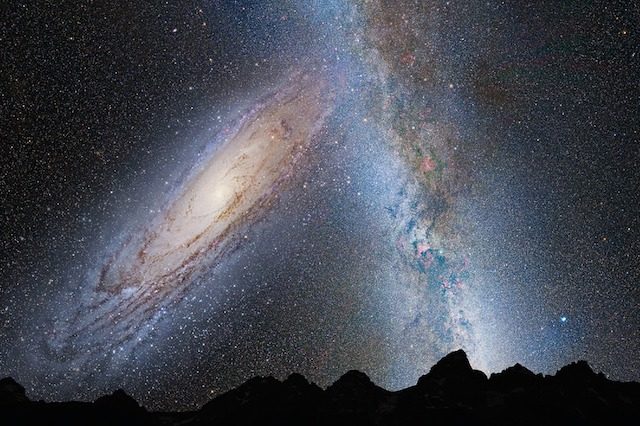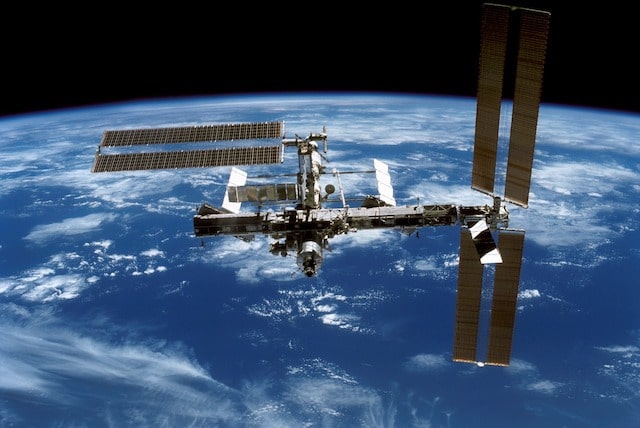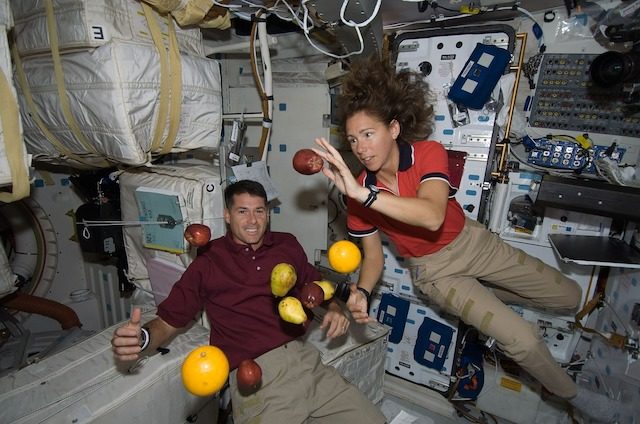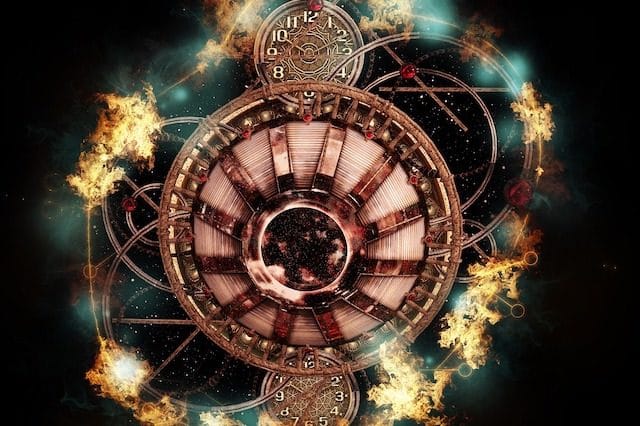On June 5, 2024, astronauts Butch Wilmore and Suni Williams left the Earth for the Worldwide Area Station. The mission had been delayed for seven lengthy years thanks to varied technical setbacks and different issues. The size of the mission was to be 8 days. Then one thing occurred.
The astronauts have been utilizing one thing referred to as the Starliner capsule, made by Boeing, to get them to and from the ISS. Besides the capsule has been affected by points like helium leaks and thruster points. Boeing has been struggling quite a few failures with its plane for years now.
The return of the astronauts has been delayed whereas the capsule is assessed to see if it’s secure for them to make use of. If not, they could not return to Earth till February 2025 with the crew from the subsequent SpaceX mission.
Everybody’s hoping it really works out for one of the best, however that might imply these two astronauts, scheduled for simply over every week, will find yourself spending 7 or 8 months in house. And long run stays in house include uncomfortable side effects.
Area has no shielding from cosmic radiation the way in which Earth does. Our environment protects us from a hell of quite a bit, however galactic cosmic radiation in house can go proper via spacecraft partitions and human our bodies. A standard keep in a shuttle or the ISS shouldn’t be too harmful as they’re meant to be brief journeys, however the longer somebody stays in orbit, the longer they’re going to be uncovered. It’s simply one of many points that they’ll must cope with.
If you’re not on Earth, it’s onerous to get entry to the issues the remainder of us take with no consideration. Whereas it’s straightforward for us to go to a 7-11 to get a Slurpee, that’s not an possibility for an astronaut. And, of their instances, it’s much less frivolous issues than Slurpees they could want like medication, meals, water, and even air. None of those are simply mendacity round up there.
Think about one thing occurs to your provide of meals, air, or water simply as you attain Mars. It takes 9 months to get there, so turning round to choose up one thing you want shouldn’t be an possibility.
Psychological well being is a priority that NASA has in regard to astronauts remoted away from Earth for thus lengthy. Within the case of the 2 astronauts stranded on the ISS, it’s more likely to be worse since this was by no means deliberate. However even when it’s a deliberate mission, or after we sit up for prolonged missions to Mars, that is going to be an actual concern.
One other main concern is how house bodily impacts the human physique. We’re not designed to dwell in a gravity-free atmosphere. This impacts organs, bone density, imaginative and prescient, and extra. Astronauts who come again after prolonged stays in house have had some fairly regarding well being points in consequence.
There are even a number of sci-fi-sounding points that astronauts must cope with on prolonged missions. The present US file for time in house is 371 days, whereas a Russian cosmonaut made it 437 days. All of that resulted in adjustments in every thing from the astronaut’s mind to the micro organism of their abdomen. NASA has recognized 30 well being dangers related to missions in house. Let’s dive into a number of extra carefully.
Cosmic Radiation Risks

It’s estimated that, on a three-year Mars mission, astronauts may very well be bombarded by sufficient ionizing cosmic radiation to trigger critical mobile and DNA injury. Proper now we don’t know simply how a lot radiation, what sort of radiation, or how damaging it may doubtlessly be since nobody has traveled that far for that lengthy.
Potential uncomfortable side effects may very well be most cancers, infertility, cataracts, and extra. Analysis into publicity to cosmic radiation has concluded that most cancers and degenerative illnesses are to be anticipated, as in they aren’t simply possibly unfortunate potential uncomfortable side effects. They’re going to occur.
Astronauts will keep in touch with ionizing radiation between 50 and 2000 millisieverts (mSv.) One mSv is what you’d get from three chest X-rays. One thousand causes radiation illness like vomiting and hemorrhaging.
Isolation and Psychological Well being

As if radiation wasn’t dangerous sufficient, house additionally wreaks havoc on the psychological well being of astronauts. Think about being trapped in a spot you actually can not go away, for months at a time, and also you’re on their lonesome. Otherwise you’re caught with one different one that you didn’t even know earlier than it began. How lengthy earlier than you begin to lose your cool?
Astronauts have been identified with a situation psychologists name the “break-off impact.” It’s characterised by a sensation of feeling indifferent from the earth, such as you’re not part of it, and was recognized way back to the Nineteen Fifties with high-altitude pilots.
Some astronauts discover themselves feeling connected to the craft they’re in as an alternative of the Earth. Alan Shepherd, the primary American in house, mentioned that when he seemed out on the Earth, he felt nothing. He thought it was underwhelming and insignificant however lied and mentioned it seemed lovely as a result of he knew that’s what everybody wished to listen to.
Shepherd lied about his expertise, and it’s one thing that astronauts are recognized to do. Psychologists have famous that astronauts are frightened of expressing their true emotions as a result of they don’t wish to be thought of mentally unwell. In reality, lots of them really feel loneliness and disconnection from the Earth and are extra concerned with their car than the planet they simply got here from.
Past these distinctive issues related to house, astronauts are additionally topic to the identical emotions that anybody on Earth would have in the event that they have been caught in an remoted scenario. Nervousness, despair, unhappiness, and extra. The issue is that they typically don’t have anybody else to speak to about it, and nowhere to go to vary their environment.
The Risks of a Lack of Gravity

Again when house flight was first being thought of, one of many chief considerations about how we’d adapt to zero gravity conditions was the flexibility to eat and drink. To at the present time you will discover plenty of articles and movies concerning the novel methods NASA has provide you with to make sure an astronaut can take pleasure in Tang in house. Seems, consuming and consuming have been one in all our least considerations.
In a zero-gravity atmosphere, the human physique suffers from a lack of bone mineral density. On Earth, your bones, like all of your different cells, are continuously altering and rising. They react to the stress that they’re beneath on a regular basis. The issue is, in house, they’re not beneath that stress anymore. As a result of gravity isn’t placing pressure in your bones, as they develop and alter when you’re in house they don’t should be as sturdy. Your bones start to develop weaker the longer you’re up there as a result of nothing is stressing them out anymore.
After too lengthy in house, your bones can change into exceptionally weak. Meaning, should you do endure some type of stress, you’re extra vulnerable to breaks and fractures. If you return to Earth, the stress of gravity weakens you a large number. It’s not simply your bones both, it’s your muscle tissue which have degraded as a result of they’re not working in opposition to the drive of gravity. There’s worry that, after a mission to Mars, an astronaut of their 30s would really feel as weak as an individual of their 80s once they bought off the craft, even after exercising frequently.
As soon as astronauts get to Mars they must cope with that shift in gravity from their module to the planet itself. Coming from Earth and returning to Earth signifies that there are three completely different gravities that their our bodies are going to must adapt to you. This will trigger house movement illness on high of muscle and blood strain points.
When Frank Rubio returned to Earth after his 371 days in house, he needed to be lifted out of the capsule as a result of he didn’t have the power to get out on his personal.
In house, astronauts must train as much as 2 hours a day, day-after-day, to forestall their muscle tissue from atrophying. This contains their hearts which all diminish as a result of lack of gravity. Astronauts who’ve returned from zero gravity have proven an incapability to keep up blood strain once they sit up and inadequate blood stream to the mind.
One other difficulty astronauts face is fluid pooling behind their eyes, the eyeball flattening out, and swelling of the optic disc. The dearth of gravity results in critical imaginative and prescient points dubbed Area-Related Neuro-Ocular Syndrome. Astronauts on prolonged missions have needed to get glasses with stronger prescriptions as their imaginative and prescient begins to fail them. A few of these adjustments are everlasting.
Abdomen micro organism undergo in zero gravity. After returning to Earth it’s been noticed in astronauts that the quantity of useful abdomen micro organism has decreased whereas extra pathogenic micro organism elevated. This one wants extra research to determine what’s occurring and if it’s a possible hazard, nonetheless. It’s not the weirdest aspect impact of being in house, although.
Time Dilation and Ageing

Time dilation is an actual factor, not simply one thing cooked up by Star Trek writers. It’s additionally one thing that has affected actual astronauts right here within the current. It’s not almost so dramatic as something you’ll discover in a cool house journey story however it’s not nothing, both. Particularly, astronaut Scott Kelly went to house whereas his twin brother Mark stayed on Earth. Because of time dilation, the hole between their ages elevated, and Mark aged a bit greater than Scott did.
The numbers listed here are extraordinarily insignificant as a result of now we have not mastered exceptionally quick house flight but and may’t do any of that “virtually mild pace” stuff that might permit somebody to journey for a month whereas years go on Earth. That mentioned, Mark Kelly is now 5 milliseconds older than Scott in comparison with earlier than he went to house.
As Einstein as soon as defined, the nearer you get to the pace of sunshine, the slower time goes. Scott Kelly was not going anyplace close to mild pace, however he was orbiting the earth at 17,500 miles per hour which is quicker than most of us will ever go and he was not as near the gravitational pull. After a 12 months in house, he shaved off 5 milliseconds.
If we may journey at mild pace, the time distinction can be much more vital. Mild pace itself can by no means be achieved in line with physics, as time would then cease solely and that appears counterproductive. However what if we bought shut? At 99% of the pace of sunshine, should you went on a 5-year journey in house, 36 years would go on Earth. At 99.99999999% mild pace, one second of journey equals 19.6 hours on Earth. One month at that pace would imply 5,876 years handed on Earth.
For long-term house journey, the time dilation would clearly go away your complete world behind. Think about Star Trek’s five-year mission if they might obtain near-light speeds which their warp engines supposedly do. That 5-year mission at warp one would go whereas 352,000 years handed on Earth.
Again in actuality, time dilation can nonetheless have curious uncomfortable side effects. Due to how gravity impacts time, an astronaut on Mars may dwell there for 80 years however die 12 seconds earlier than they’d in the event that they lived the very same 80 years on Earth.
It’s not your pace that impacts time dilation, however gravity as nicely. Meaning, should you have been away from the gravitational pull of a planet and touring via house at a traditional pace, that’s one thing nicely under the pace of sunshine, time would find yourself transferring slower for you than it could for folks on Earth. That’s why high-orbit satellites age quicker than these nearer to Earth’s gravitational pull.
Extra gravity means slower time. On a planet with excessive gravity, or like within the film Interstellar the place the planet is close to a black gap, time would appear to decelerate in comparison with time on earth.
As weird as all of this sounds, and it looks like it doesn’t make sense, it’s been confirmed many occasions over. Experiments with atomic clocks have proven time does decelerate should you transfer away from a supply of gravity. You’ll be able to arrange two exact clocks at the very same time, lined up completely right down to the microsecond, and the one which travels all over the world will come again at a distinct time.
Will time dilation be an enormous deal for any astronauts in our lifetime? In all probability not. Possibly at some point, if we develop an engine able to near-light pace or by some means quicker than lightspeed journey. Till then, we’re simply coping with fractions of seconds. Not the tip of the world, however actually attention-grabbing nonetheless.
Given all of the horrible issues that prolonged house journey can do, it’s good to know that there’s at the least one which’s just a bit bit goofy however not harmful.
Different Articles you May Like

